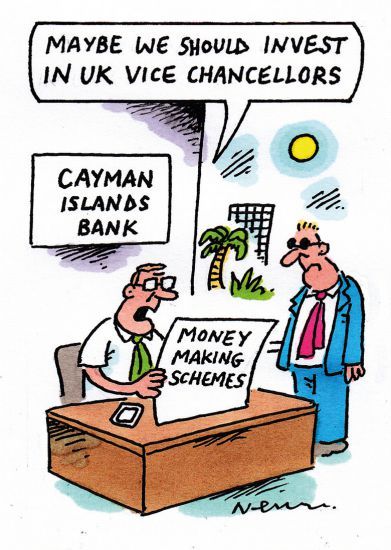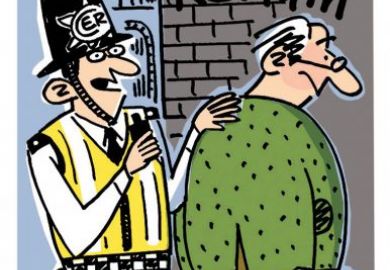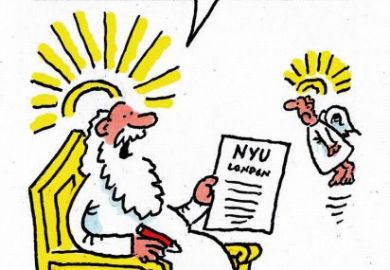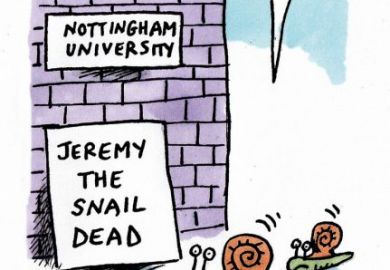
Sir Anton Muscatelli has become the latest university head to wade into the row over vice-chancellors’ pay by rejecting the idea that those running institutions could take voluntary pay cuts. The University of Glasgow vice-chancellor and chair of the Russell Group said that such a move – suggested by the chair of the new Office for Students, Sir Michael Barber – amounted to “gesture politics” and argued that the issue was best tackled through greater transparency on pay, The Times reported on 10 November. In this vein, the newspaper said that he has allowed the release of data showing that his basic salary of almost £280,000 is about seven times higher than the average staff salary at Glasgow. Whether other vice-chancellors follow suit or simply dismiss this as gesture politics remains to be seen.
While anger over pay for university leaders rumbles on in the UK with little more than people making gestures at each other, in the Republic of Ireland they want to pay their senior academics more. The Irish Times reported that universities will be allowed to pay top researchers up to €250,000 (£220,000) in a bid to attract leading academics, especially those fleeing a post-Brexit UK. Unlike the UK, super-sizing salaries in Ireland is restricted by a rule stating that no one in the public sector may be paid more than the Taoiseach, who currently earns about €190,000. But according to the newspaper, the country’s Department of Education said that a “special derogation” had recently been approved for universities, although it is likely to affect only specific high-value research projects. Perhaps vice-chancellors will end up flocking across the Irish Sea when the UK government stops its empty gestures and actually starts regulating pay.
Leaked documents have revealed that US universities are “big players” in offshore tax havens, where much of their multibillion-dollar endowments are held, The Guardian reported on 8 November. According to the so-called Paradise Papers, at least 104 US universities have invested in secretive hedge funds and private equity firms registered mainly in the tax-free authorities of the Cayman Islands and Bermuda, where many of these funds are funnelled into the oil and gas industries. Nearly half of all Oxbridge colleges, as well as the universities of Oxford and Cambridge themselves, have also invested tens of millions of pounds in offshore funds, The Guardian said. Jonathan Bate, provost of Worcester College, Oxford, which has £1.35 million invested, pointed out that its portfolio was, like that of many colleges, run by the university’s main endowment management scheme, OUEM. “Since the endowment is held at arm’s length in OUEM, Worcester has no direct investments – onshore, offshore, in cyberspace, or anywhere else,” he said.
A University of Cambridge professor’s email about the perils of partying has reignited the national debate about easily upset “snowflake” students after some complained that the message might harm their mental health. Eugene Terentjev, director of studies in natural sciences at Queens’ College, Cambridge, wrote to first-year students to advise them not to be “fooled” by other students whom they might see “partying around”, The Daily Telegraph reported on 7 November. “Be sure, none of them are physical science students,” the professor wrote, adding that “you can ONLY do well…if you are completely focused”. The Cambridge branch of Student Minds, the UK student mental health charity, claimed that the email could induce “impostor syndrome”. The group went on to “condemn” the “outdated” message that students should pursue nothing but academic work. Cue a blizzard of editorials about why, according to Times restaurant critic Giles Coren on 11 November, today’s “darling half-melted snowflake[s]” should knuckle down and get used to the grind of the world of work.
Perhaps there should be a trigger warning for Harvard University’s annual “Sex Week”, which now includes a class on anal sex. The Evening Standard reported on 11 November on the inevitable online backlash, including one Twitter user who grumbled: “So this is why parents work overtime to send kids to prestigious school…Wow, and we call this education!” Harvard said that the hour-long class, “What What in the Butt: Anal 101”, was designed to teach students “how to make anal play healthy, safe and pleasurable”. It was aimed, the university added, at students who were “interested in anal play but unsure where to begin”, although some might feel that the name is a bit of a giveaway.
Register to continue
Why register?
- Registration is free and only takes a moment
- Once registered, you can read 3 articles a month
- Sign up for our newsletter
Subscribe
Or subscribe for unlimited access to:
- Unlimited access to news, views, insights & reviews
- Digital editions
- Digital access to THE’s university and college rankings analysis
Already registered or a current subscriber?





